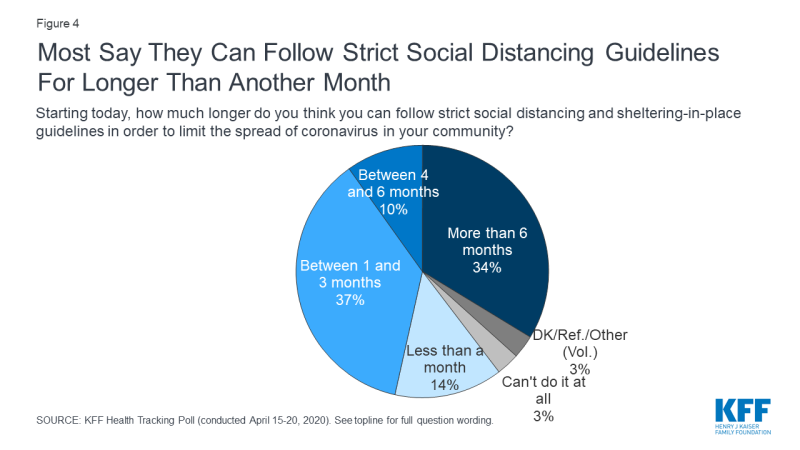The day after lockdown measures were implemented in the UK, YouGov conducted a poll of 2788 adults testing whether they supported or opposed the imposition of the measures.
They found that 76% of respondents strongly supported the measures, 17% somewhat supported them, and only a combined 4% opposed them in any way.
Just over two weeks later, on April 9th, they conducted another poll which asked respondents whether they would support or oppose lockdown restrictions being extended further than the initial three week period.
It found that while strength of support may have dropped slightly, the public was still overwhelmingly in favour of an extended lockdown, and that any drop in support was fairly negligible - combined opposition was found to be 5%, with combined support at 91%.
Indeed, YouGov has also found that at least in one part of the UK, respondents think that the lockdown doesn't go far enough - a poll published on April 10th that surveyed adults in Wales found that a majority (53%) thought that the lockdown measures should be tightened, with only 6% thinking that the measures should be relaxed.
I think we can conclude from this that although there may be a small amount of quarantine fatigue given the slight drop in strength of support for the lockdown measures between March 24th and April 9th, the public still remains overwhelmingly content with the measures at the moment, and there is evidence that at least one constituent country of the UK may support a tightening of the lockdown measures.
Update:
Working with YouGov and ICL, the Institute of Global Health is publishing weekly international data on polling related to the COVID-19 pandemic. The full range of data is available on GitHub, but with regard to the specific question, about quarantine fatigue, the nearest question in their dataset is probably "Willingness to self-isolate", from which we can look at trend data to draw conclusions about fatigue. Similar to my previous answer, although the data from the last week in the data (Apr 13 - 19 at the time of writing) shows that some countries are clearly more willing than others to maintain isolation, there is still overwhelmingly broad support of lockdown measures. Notably China and India have lower figures, but respondents don't really go as far to say they are unwilling to stay in lockdown, rather that they are either 'somewhat willing' or 'neither willing nor unwilling' to stay in isolation.
